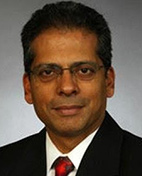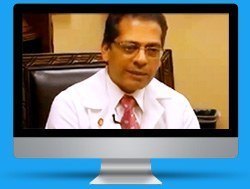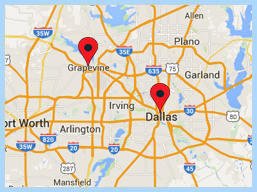Stress Management
Stress is a common condition every individual experience in their activities and the stress may be physical, emotional or psychological stress. While stress is a part of everyday life, it can be considered a disorder when your level of stress and your methods of handling stress lead to impacts on your quality of life, relationships, or your health. Periods of prolonged stress can lead to increases of stress hormones in your body that can eventually lead to depleting vital nutrient stores that allow you to deal with your stressful situations in life. This can lead to a state we like to call "wired but tired". Some of the events that may cause stress disorder include the financial problems, personal relationships, workplace stress, health issues and other family issues.
Common symptoms of stress disorder include headache, frequent cold, infections, sleep disturbances, anxiety, fuzzy thinking, lowered libido, increased frustration and irritability.
Individuals may have different sub-types of stress disorder which may vary with the characteristics, symptoms, duration and the available treatment options. The sub-types of stress disorder include:
- Acute stress: Acute stress is the stressful condition that bothers you for short-duration and may be caused because of some of your daily activities. It is more common than other forms and triggered by the events that bothered you recently or you are expecting in the near future. Acute stress can be exciting and even thrilling in some situations, but too much stress ends up as a disorder. Acute stress can lead to psychological problems, tension headaches, gastrointestinal disturbances and other symptoms. As the stressful condition lasts for short duration you may not experience serious problems as seen in long-term stress condition.
- When under acute stress you may experience some of these symptoms:
- Emotional disturbance caused by blend of anger, irritability and depression
- Physical problems such as headaches, pain in the back, jaw pain, and pain in the tendons and ligaments
- Gastrointestinal disturbances such as heartburn, acidity, flatulence, diarrhea, constipation, and irritable bowel syndrome
- An increased heart rate, increased blood pressure, palpitations, headaches, shortness of breath, chest pain, and dizziness
- Episodic acute stress: Episodic acute stress is a more severe form of acute stress where individuals repeatedly get stressed out rather than once in a while, as in acute stress. This type of stress is common in those Type A individuals (as described in cardiology) who over-commit, have too many things to do in a short period of time, who frequently swap between their priorities or have less time to relax. Episodic acute stress may cause persistent tension headaches, migraines, hypertension, chest pain, and heart disease. The relationships of people with this disorder may not last long. People who suffer from this type of stress always have a feeling of being rushed but are usually late to where ever they go. Their habits and personality traits may be so ingrained that they cannot get away from their stressful lifestyle. These individuals have an excessive competitive drive, aggressiveness, impatience, and a sense of time urgency. These individuals are more likely to develop coronary heart disease. Another form of episodic acute stress is “worry warts” where individuals worry and expect the worse to happen in every task/situation that normally is not worrisome. They feel the world is a dangerous, unrewarding, and a punishing place. They tend to be over aroused and tense, but are more anxious and depressed than angry and may have enmity characteristics.Chronic stress: Chronic stress is constant and persists over an extended period of time. This type of chronic stress is developed by the frustration or helplessness because of poverty, familial disputes, unhappy marriage life or a hated job or career.
-
Chronic stress
can occur from childhood traumatic events that were deep-rooted and bother the individuals repeatedly. Chronic stress may have a significant impact on physical, mental and emotional well-being of an individual. Chronic stress is reported in some studies as being the cause of 7 out of 10 visits to physicians offices in the United States. Prolonged stress response can destroy stores of nutrients related to the stress response and can leave the body missing vital nutrients for health. At times the frustration may end up in disasters such as suicide, violence, heart attack, stroke and possibly even cancer.
Stress Management
The first step in coping with stress is identifying early warning signs of stress such as tension in your shoulders and neck, closing or holding fists tight or biting your teeth. Exercising regularly helps in releasing the piled-up or non-expressed stress and tension. Exercise can make your body look good and can cause the brain to release chemicals that will help you feel better.
Meditation is a technique of reducing stress on both mind and body. Meditation can give you a sense of calm and peace. Regular meditation can increase your longevity and quality of life. A common relaxation technique called progressive relaxation may help to promote relaxation in your body. This involves intentionally tightening and then focusing on relaxing your muscles in succession. Stretching exercises may also help to relieve stress. Begin with neck and arm circles, using slow, continuous movements. Then reach arms towards the ceiling into a deep stretch. Begin bending slowly side to side and continue with slow hip circles if desired. Deep breathing may also help increase your feelings of relaxation by helping to regulate your heart rate variability. To perform this technique, lie down on a flat surface or sit in a comfortable chair. Place one hand on your stomach and the other hand on your chest. Take a deep breathe through your nose so that the hand on your stomach rises. Be conscious that your shoulders are not moving up (like shrugging your shoulders) as this means that you are not actually getting deep breaths. Hold your breath for one second and then breath out slowly through your mouth. The hand on your stomach should go back down.
Here are some tips to help you deal with stress:
- Recognize and accept the things that you cannot change
- Take control of the situation by solving small problems
- Get prepared well for the events such as job interview or public speech
- Try to see stressful situations from a more positive view
- Learn to resolve conflicts in your personal and work relationships
- Try talking things through with a trusted friend, family member or a professional counselor
- Set yourself realistic goals and challenges, whether at work or home and avoid over-scheduling yourself
- Exercise regularly
- Learn to meditate
- Start with eating a well-balanced, healthy diet as well as getting enough sleep
- Get involved in activities that bring you joy, such as sports, social events or hobbies
At Healthy Living Dallas we believe firmly in the effects of stress on our current and future health. Throughout the program we will ask you to identify your current stress levels and may recommend a full stress-assessment questionnaire if we feel that you need more time focusing on this particular area of your health. Depending on your level of stress, movement meditation, guided imagery, deep belly breathing, meditation or yoga, mind-centering, exercise, or referrals to a psychologist may be part of our stress management approaches.
Dallas
3800 San Jacinto
Dallas, TX 75204
(214) 827-8777
Driving DirectionsHours:
Monday, Wednesday,
Friday: 8:00 a.m. - 11:00 a.m.
Tuesday: 4:00 p.m. - 7:00 p.m.Grapevine
823 Ira E. Woods Avenue
Grapevine, TX 76051
(214) 827-8777
Driving DirectionsHours:
Thursday: 1:30 p.m. - 5:00 p.m.






